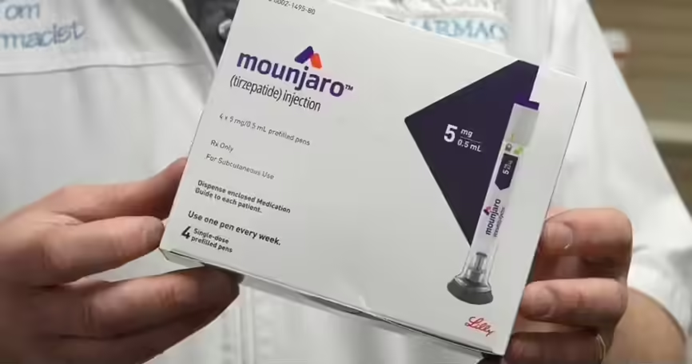Our Terms & Conditions | Our Privacy Policy
₹98 Crore Reached in July Amidst Growing Demand, ETPharma
New Delhi: Since its debut in March this year, Eli Lilly’s blockbuster GIP/GLP-1 dual agonist, ‘Tirzepatide’ is expanding footprint at a two-fold rate in India, with its brand Mounjaro racking up ₹98 crore in total sales, including ₹47 crore in July alone.
According to domestic sales tracker PharmaTrac, Tirzepatide, indicated for type 2 diabetes and chronic weight management, reported net sales of ₹47 crore in July—a two-fold jump from ₹23 crore in June.
Following its launch in March, Mounjaro’s monthly net sales have risen from Rs 3 crore (in its partial launch month) to Rs 8 crore, Rs 13 crore, Rs 26 crore, and most recently over ₹47 crore in July, cumulatively amounting to ₹98 crore, PharmaTrac data shows.
Presenting the data during a virtual briefing, Sheetal Sapale, VP – Commercial, Pharmarack, said, “Since its launch, Mounjaro has achieved 2x growth in sales value and has established a strong prescriber base, supported by aggressive promotions.”
As of July, India’s total GLP-1 market is valued at around Rs628 crore, with Semaglutide commanding the largest share, holding a moving annual turnover (MAT) of ₹421 crore, followed by Tirzepatide which has MAT of ₹98 crore.
Interestingly, in July, Eli Lilly’s Mounjaro surpassed Semaglutide in monthly sales, with ₹47 crore in net sales compared to ₹38 crore for Semaglutide split as ₹7 crore from Wegovy (weekly injectable) and ₹31 crore from Rybelsus (oral tablets).
In contrast, in June, Mounjaro clocked ₹23 crore while Semaglutide stood ahead at ₹31 crore, driven largely by the launch of Wegovy.
Besides value, Mounjaro also outpaced Semaglutide in unit (volume) sales, with 157,000 units sold compared to 120,000 units for semaglutide—across both injectable and oral forms.
“Wegovy has a strong prescriber base due to Rybelsus. However, substantial promotion may be needed to tap into the same patient base in the injectable market,” Sapale noted.
“Once generics enter the market, volume will dominate, and maintaining the same value will be challenging,” she added.
Notably, Novo Nordisk’s Semaglutide, marketed under Wegovy and Rybelsus, is expected to lose patent protection in India by March 2026. Several Indian pharma majors including Cipla, Dr. Reddy’s, Lupin, Alkem, among others, are reportedly working on generic formulations, aiming to be among the first movers post-expiry.
Responding to a query from ETPharma on the expected market outlook post-patent expiry, Sapale said, “Many pharma companies are banking on affordability. However, obesity is a condition that requires specialist intervention and proper patient segmentation.”
“It’s not a molecule that should be routinely prescribed by consulting physicians. If specialists adopt generics, it could expand the patient base to some extent—but it may not be as large an opportunity as branded generics in the DPP-4i and SGLT2 categories,” she added.
Meanwhile, several estimates suggest that after the entry of generics, patients could see a significant drop in treatment cost, with monthly prices potentially falling to as low as ₹4,000, down from the current range of ₹14,000 to ₹25,000, depending on the brand.
- Published On Aug 7, 2025 at 03:13 PM IST
Join the community of 2M+ industry professionals.
Subscribe to Newsletter to get latest insights & analysis in your inbox.
Get updates on your preferred social platform
Follow us for the latest news, insider access to events and more.
Images are for reference only.Images and contents gathered automatic from google or 3rd party sources.All rights on the images and contents are with their legal original owners.



Comments are closed.